Ieva
—
An honest take.
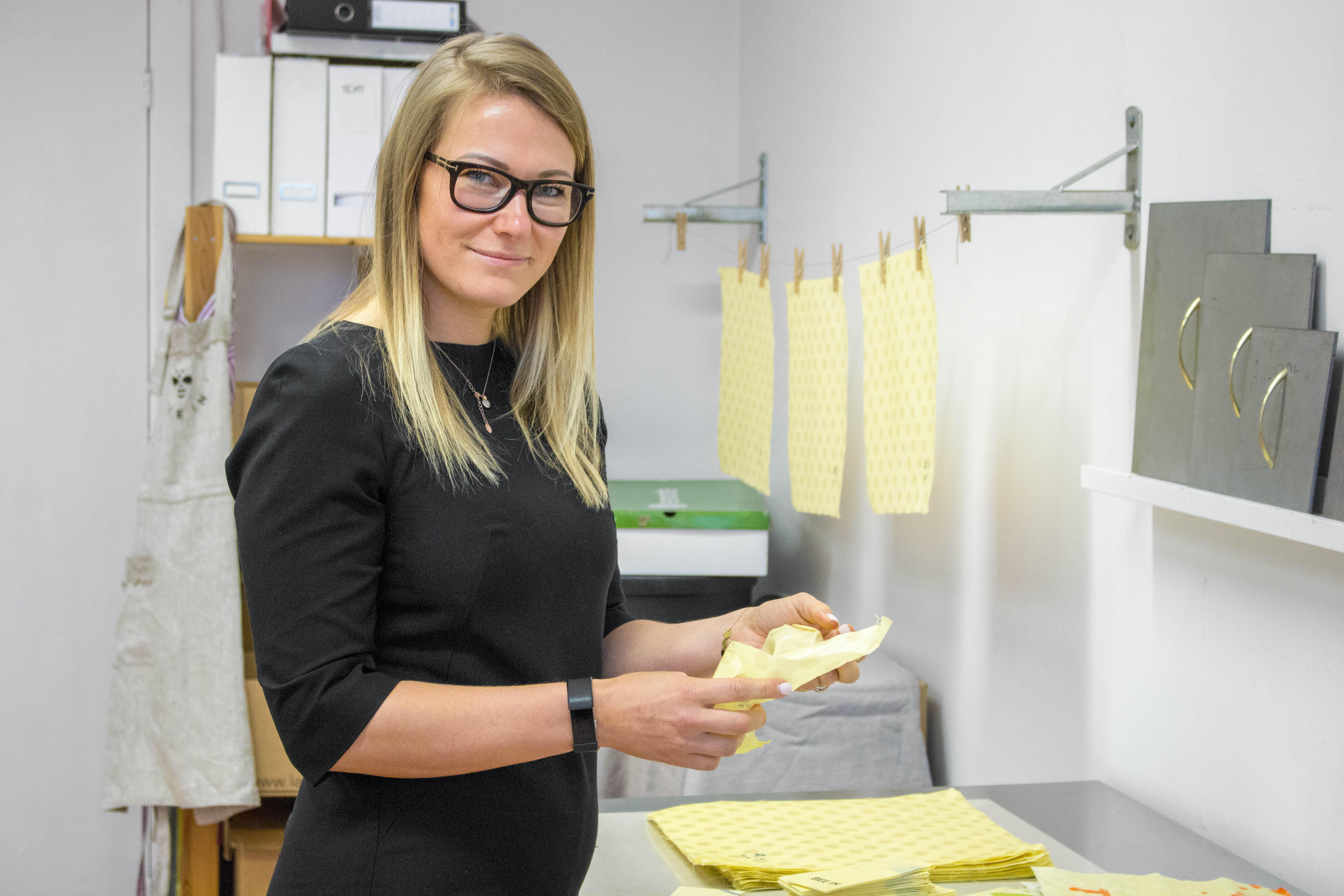
Looking back at her young teenage self, Ieva Sulutaura can’t help but chuckle at how much she’s changed. The once shy girl was raised in Latvia by hardworking parents whose livelihoods were reliant on the local bee industry. Intrigued by Scandinavian culture, she left home at 18 to pursue a International Multimedia and Communication degree in Denmark—a move that would take her far beyond her comfort zone and broaden her horizons.
Returning to Latvia four years later, the now fiercely independent woman had learned to converse in two foreign languages and gained a tremendous amount of confidence along the way. Moreover, her employment as a domestic worker—which sustained her financially all the way through university—equipped her with lifelong resilience. Enriched by her experience abroad, yet happy to be home, she took on a full-time job as a graphic designer in a Scandinavian corporation in Riga—until, that is, her BEE IN business idea inspired her to put the breaks on her design career, dig into her savings, and pour all her passion into a project she truly believed in. And she would not even allow a serious infection in her leg, which she became unexpectedly afflicted by while travelling in the tropics, to dampen her spirits or stand in the way of her plans.
Fast forward to early 2019, it has been just over three years since Ieva began bringing beeswax wraps to homes across Europe. Today, her business is flourishing, and she remains determined to combat our planet’s plastic pandemic. We paid a visit to her home and studio, where she warmly welcomed us to take a closer look at her life and story.
Let’s talk trash…
It's not just on Facebook that you see dying whales and floating trash, you also see it a lot while travelling. Two years ago I was in Indonesia snorkelling with manta rays and one of them was full of plastic; she was covered in it. One of the guys from our group dove down and tried to put the plastic off of her. Manta rays swim with their mouths open so basically, if it’s not on their shoulders, it’s in their mouths. It was bad. At that point, I understood that I’m having such a small impact [with my business]. In some countries, such as Thailand and Indonesia, everything comes in plastic—even small packets of rice. Then they burn the trash, and it makes you think, “I’m trying to do something against this, but actually much bigger changes still need to happen.”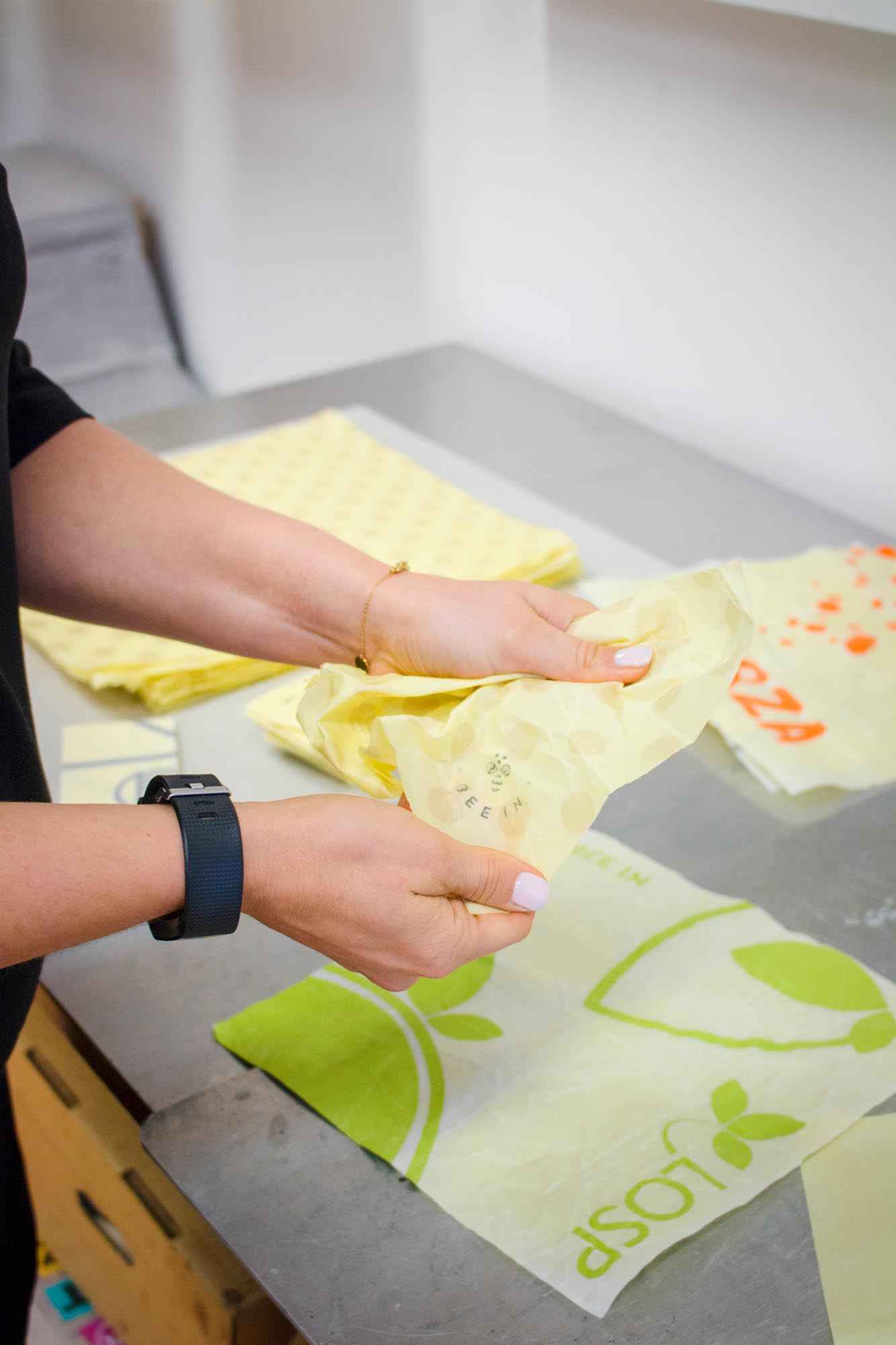
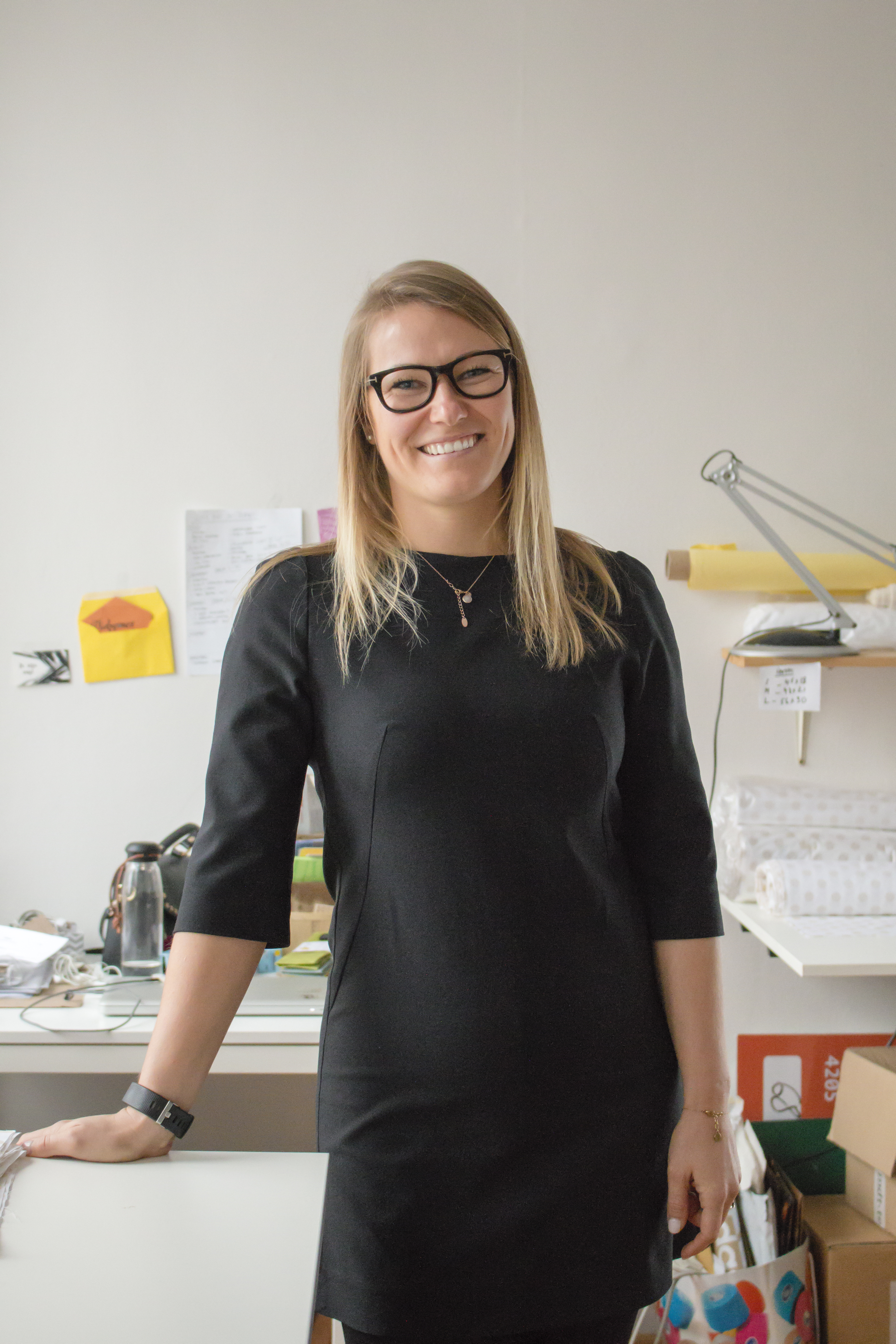
How would you describe the sustainable scene in Riga?
You go to the stores with your own bags and bottles, and then there is this old lady in line in front of you, and every carrot is in a separate plastic bag, and you just cringe. But ever since three zero-waste stores opened here this summer, it’s been amazing. The movement is still quite small though compared to some of the places I’ve been to abroad. Recently, I went to Stockholm to visit my friend, and the organic store had two floors. You can basically buy everything you need in one place. When big supermarkets in Riga begin implementing more natural products, it will become more accessible to people. It’s going to get easier because you won’t have to do as much planning. If you have to buy some things in one place and others in another, nobody bothers to make the best choices.I would like to start sorting my organic trash, but we don’t really have places to throw it out yet. But, in one of the zero-waste stores here, there is this woman, Nadina, she’s always on Instagram talking about these topics, so more a lot of people are getting to know why, how and where you do certain things. Suddenly, lots of people are discussing it. There is quite a big group of zero waste people here and they are now really encouraging one another.
One of your business’s main mottos is “Reuse. Reduce. Recycle.” How do you practice these concepts in your everyday life?
I never thought I’d be one of those people who washes their hair with these natural soaps [instead of conventional, bottled shampoos], but I found this amazing soap that is produced in Latvia, and now my first one is almost entirely used up. They are small enough to fit in your palm, so when you are travelling you can just put one in your bag, and you don’t have to carry so many liquids. You just massage it into your head and it starts foaming… I also have a reusable coffee cup. I’m not a big coffee drinker, but once in a while, I like to stop by a café and grab a latte. On those days, I take my own cup with me, and then I feel better about myself and the environment. That said, there are still some things that I cannot get used to. I tried using bamboo toothbrushes, but they were too tough for my teeth and my gums started bleeding.Both my travels and the problem with my leg not only helped me learn to watch what I’m eating, but they also showed me that I don’t actually need so many things. While I was sick, I was living with my cousin for half a year, and I just had my toothpaste, toothbrush and a couple of clothes. When I came home, I sorted out my belongings and gave a lot to charity. In reality, you just need a couple of things, as long as they are of good quality and in good condition. A friend of mine is starting her own Marie Condo business which is all about organising your closet. There’s also this capsule wardrobe concept where you only need a couple of pieces that you can combine, so she’s also really into that... We’re interacting with each other on all these different topics at the moment.
It’s still tough reducing my own things sometimes. I’m trying to sort the trash in my place, but we don’t have separate containers in my building, so I have to drive to dispose of them. What’s shocking is that I can still see that it’s my plastic trash that fills up the most; it’s so quick! I go shopping with my own bags and I never buy vegetables in plastic but still, it finds its way into my life in so many other ways. When you want to be more conscious, I think, for the most part, you need to do more planning. For example, trying to buy a lot of food on Saturdays and Sundays, so that you have it for the rest of the week. And if you’re going on a trip, you can just put it in the freezer and then it’ll be fine.
Lately, I’ve been listening to this podcast by the outdoor brand Patagonia. The mission that the guy talks about is amazing. When they sell you the clothes, their attitude isn’t "Now it’s yours, deal with it.” They are going all around America with trucks, repairing items. And you actually have a lifetime guarantee for the products you buy. Things like that inspire me a lot. That’s why, in my own business, I am always telling people that if something is not working, if you have a question, call me. We will sort things out, I will tell you how to use it. I know that it can be difficult with something new.
How has living abroad impacted you as a person?
My life changed when I moved to Denmark. Overall, I think I became more open-minded. I went there with a friend when I was 18. We lived in a small city called Herning and then later moved to Aarhus. When I arrived I was really shy—I didn’t really speak to anybody for two months because my English was so bad. But then, somehow, I started forcing myself to speak, and it became easier. Denmark was quite expensive coming from Latvia. At the time, there was a financial crisis in Latvia, and our parents couldn’t support us much. As a result, we had to stand on our own feet, so we worked as cleaning ladies for three years during our studies. Thanks to that, I’m not afraid of doing any type of job anymore. Living abroad really built my character.In Latvia, we have this mindset that after school you go to university, then you get a boyfriend or girlfriend, then you get married and then you are considered part of society. When I went to Denmark, I saw that I was actually the youngest person studying there—some people were 28, 35, 40 years old… I was amazed when I learned that the Danes usually take a gap year.
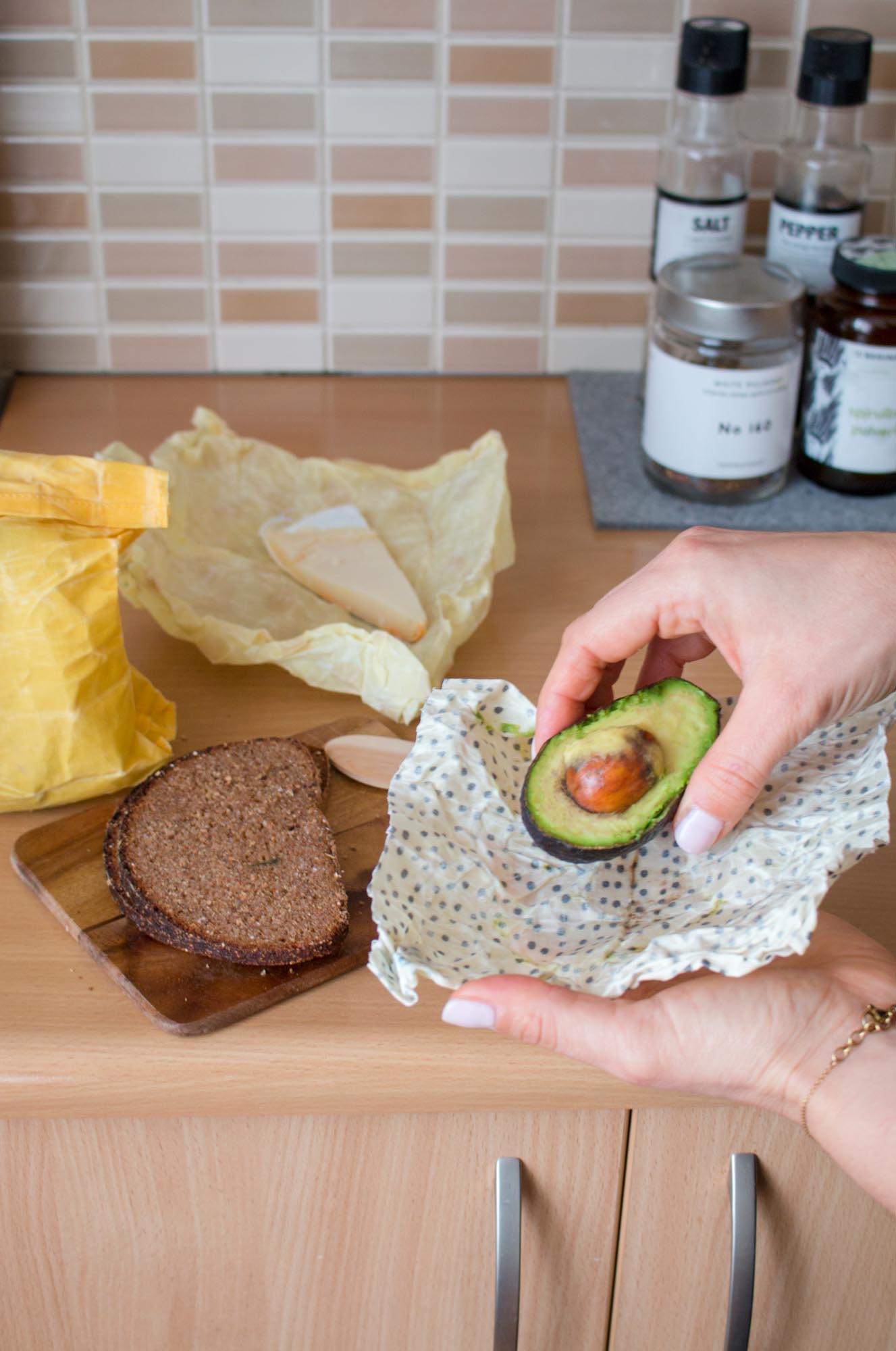
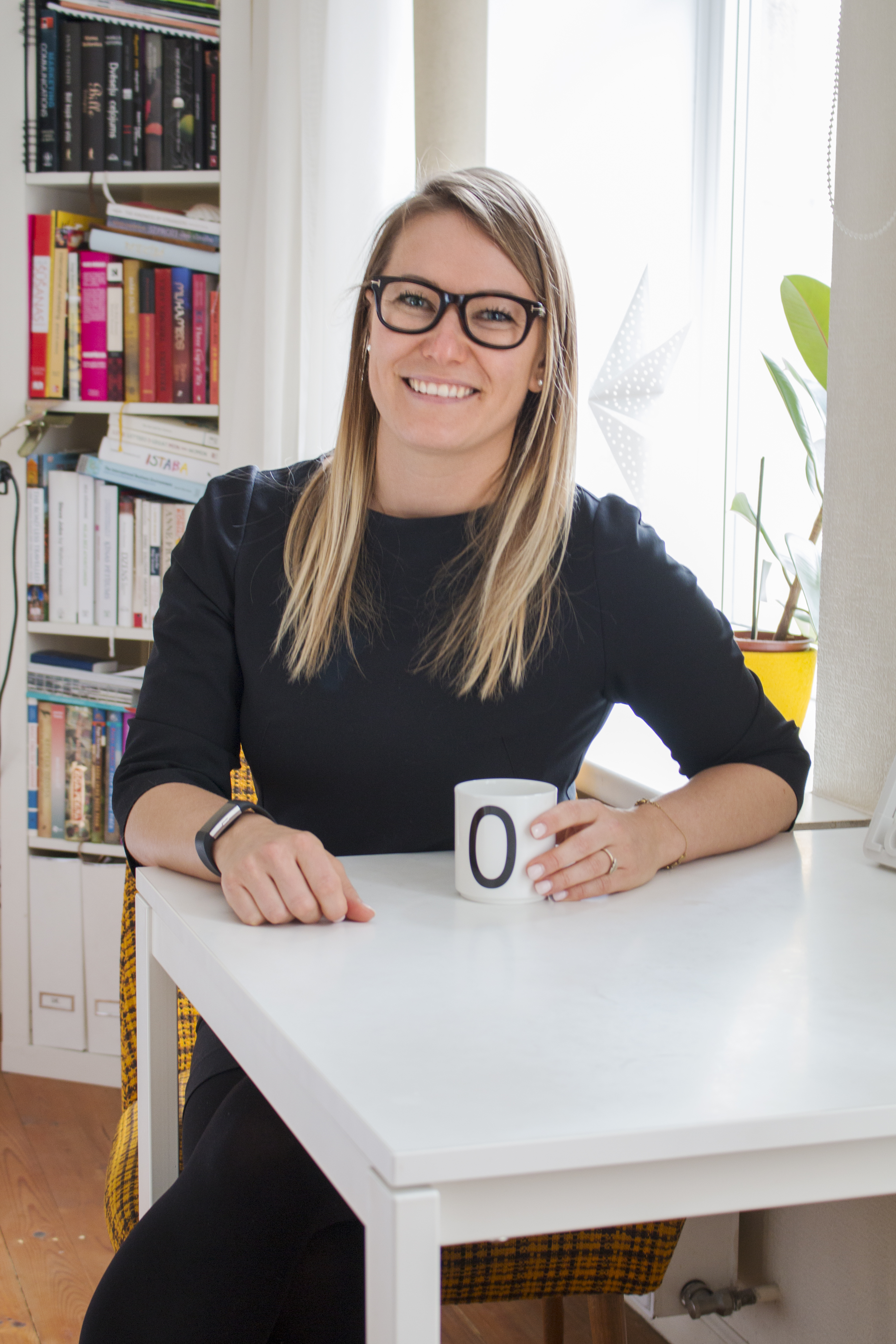
And travelling?
I have been travelling since I was seven or eight-years-old because I played the Latvian national instrument, called the kokle—it’s a bit like a harp—so I’d have performances in other cities. But then [after moving to Denmark], I got the travel bug even more, and I haven’t stopped ever since. It’s where I get most of my ideas. When you are running your own business, you are basically working all the time, admittedly, even while you’re travelling. But when I’m travelling, I just have my computer with me, and then it’s easier to switch off and tap into the ideas that are trapped at the back of my headTo date you’ve travelled to 44 countries. What dream destination is next on your list?
Africa is the only continent I haven’t been to at this point*, so I’d like to go there. My sister and I were talking about climbing Kilimanjaro next year…*Note: This interview was conducted in late 2018. In January 2019, Ieva fulfilled her dream of going to Africa when her sister surprised her for her birthday and gifted her a spontaneous trip to Morocco.
What else do you do when you’re not busy managing your own business?
I love to run. I run a lot. That’s what I do to keep my mind off things; what I do to put things in the right shelves in my head. I just turn some music on and start running. On weekends, I just like getting out of Riga and heading straight to the countryside to go hiking with friends or by myself. Right now, I'm trying to do this Latvian Baltic Sea trail, so I’m taking it on in separate parts. I don’t know how much I’ve done now, maybe around 200 km—all in all it’s around 498 km. It’s a challenge I’ve set for myself. I recently returned from hiking an eight-day fisherman’s trail in Portugal. That was one of the toughest hikes I’ve ever done because we had 10 kg on our backs, and the trail was really sandy. My mom’s always asking me why I do it, but it’s not torture for me—the nature, the cliffs, the ocean, the people, everything—Portugal was seriously amazing.Where do you see yourself in five or ten years?
I would love to live in Sweden for a while just to try it out. I’m learning Swedish right now with Duolingo. I already speak Danish which makes it a bit easier. Why Sweden? Somehow, whenever I go there, I just feel good. I could still run my business from there if somebody else were working from here. Maybe I could expand the business somehow to implement it a little more in Scandinavia. I could manage things from my computer, and it’s only a 40-minute flight to Riga, so it’s almost like a drive somewhere in the city… Right now, I’m flying a lot. That’s the only thing connected to the environment that I’m not reducing for now. Business-wise I would like to have this product in every household in Europe at some point.If you could change one thing in the world, what would it be?
That people would be more kind to each other because I think that a lot of things start when we don’t pay attention to each other. If we’d pay attention more to how we are feeling and ask how others are doing and not just say, “fine” and then take this “fine” as an answer. Yeah, to be kind and smile. People should smile more.Thank you, Ieva.
Interview: Maia Frazier
Images: Sabīne Zoltnere